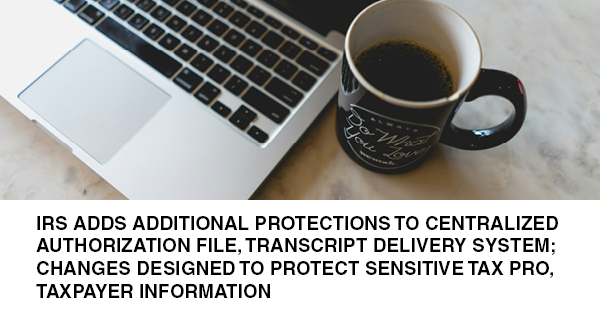ACTING COMMISSIONER DOUGLAS O’DONNELL SPEAKS OUT:

Just days after the interim replacement for outgoing IRS Commissioner Chuck Rettig was announced, now acting Commissioner Douglas O’Donnell addressed an audience of tax practitioners and government officials.
“Simply put, the approximately $80 billion will enable us to broaden our horizons in terms of what we are and what we can do to enhance the experience for taxpayers, tax pros, [and], frankly, everyone that interacts with the system,” he said in his opening remarks. “We will use these resources wisely and efficiently to achieve the improvements that we all know that we need.”
To help facilitate what O’Donnell described as broad “transformation efforts,” a new central office within the IRS has been established. According to the new interim commissioner, this office will coordinate the implementation of the inflation bill’s myriad provisions with various divisions, information technology staff, and the Human Capital Office. Such cross-departmental collaboration has already been instrumental in the beginning months since the legislation’s enactment. According to O’Donnell, the IRS aims to have prepared a strategic operating plan, as required by Treasury Secretary Janet Yellen.
O’Donnell said that right now, hiring is a major priority, especially ahead of the upcoming tax filing season. New hires will consist of IT experts, data scientists, and compliance enforcement agents. He made a point to specifically refute the notion that the agency will double its roster of auditors overnight.
“It is not possible to double the workforce in any component of our organization that has any size. It’s just not going to happen,” said O’Donnell. He later rebuffed “wild inaccuracies” surrounding messaging from some lawmakers that the funding will be used to unleash “an army of armed agents to audit and harass taxpayers.” O’Donnell, echoing his predecessor, emphasized that low-and middle-income families and small businesses will not be the subject of heightened scrutiny, citing Yellen’s directive that audit rates will not rise above historic norms for taxpayers making under $400,000 per year.
According to O’Donnell, the IRS currently employees 38,000 fewer workers than in 1992 when the population of the U.S. was 30% smaller. He noted that the modern tax code is substantially more complex, especially surrounding cross-border activity. Alongside bringing on new staff, a simultaneous goal should also be to retain the existing workforce, he continued, as the agency has an annual attrition rate of 8,000 people, largely due to retirement.
Speaking to the outstanding backlog of unprocessed paper returns, O’Donnell reaffirmed that the goal is still to clear the current inventory by the end of this calendar year. To prevent future delays, he said the IRS is prioritizing a shift toward digital. This includes scannable returns to expedite processing, more forms that can be filed electronically, and online taxpayer correspondence.
“We have a great deal of work ahead of us, but I know that the IRS employees and leaders are up to the task,” O’Donnell closed. “We have already begun to set our sights super high. We got the $80 billion. There is an expectation that we deliver, and it is a heavy responsibility, one that we are taking very seriously.




